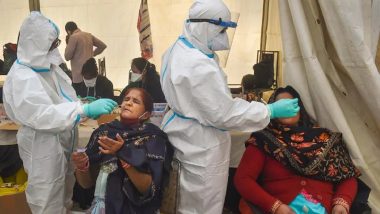Washington, April 20: Patients hospitalised with COVID-19 pneumonia have a higher risk of developing dementia than those with other types of pneumonia, according to a study. Researchers at the University of Missouri (MU) in the US pulled electronic medical records of 1.4 billion encounters prior to July 31, 2021 in Cerner Real World Data.
They selected patients hospitalised with pneumonia for more than 24 hours.
Among 10,403 patients with COVID-19 pneumonia, 312 (3 per cent) developed new onset dementia after recovering, compared to 263 (2.5 per cent) of the 10,403 patients with other types of pneumonia diagnosed with dementia.
“The risk of new onset dementia was more common in COVID-19 pneumonia patients over the age of 70 in our study,” said lead researcher Adnan I. Qureshi, a professor of clinical neurology at the MU School of Medicine.
“The type of dementia seen in survivors of COVID-19 infection mainly affects memory, ability to perform everyday tasks and self-regulation. Language and awareness of time and location remained relatively preserved,” Qureshi said in a statement. The median time interval between infection and dementia diagnosis was 182 days for COVID-19 patients, according to the researchers. Plasma-Based Green Disinfectants Can Limit Spread of Infectious Diseases Like COVID 19.
The study, published in the journal Open Forum Infectious Diseases, only included new onset dementia associated with hospital admission during a short follow-up period. "Approximately 3 per cent of patients with pneumonia associated with SARS-CoV-2 infection developed new-onset dementia, which was significantly higher than the rate seen with other pneumonias," the authors of the study noted.
Qureshi said further study over longer periods of time would provide a more complete picture and may help to determine the underlying reasons why COVID-19 pneumonia might increase dementia risk.
“The findings suggest a role for screening for cognitive deficits among COVID-19 survivors. If there is evidence of impairment during screening and if the patient continues to report cognitive symptoms, a referral for comprehensive assessment may be necessary,” Qureshi added.













 Quickly
Quickly


